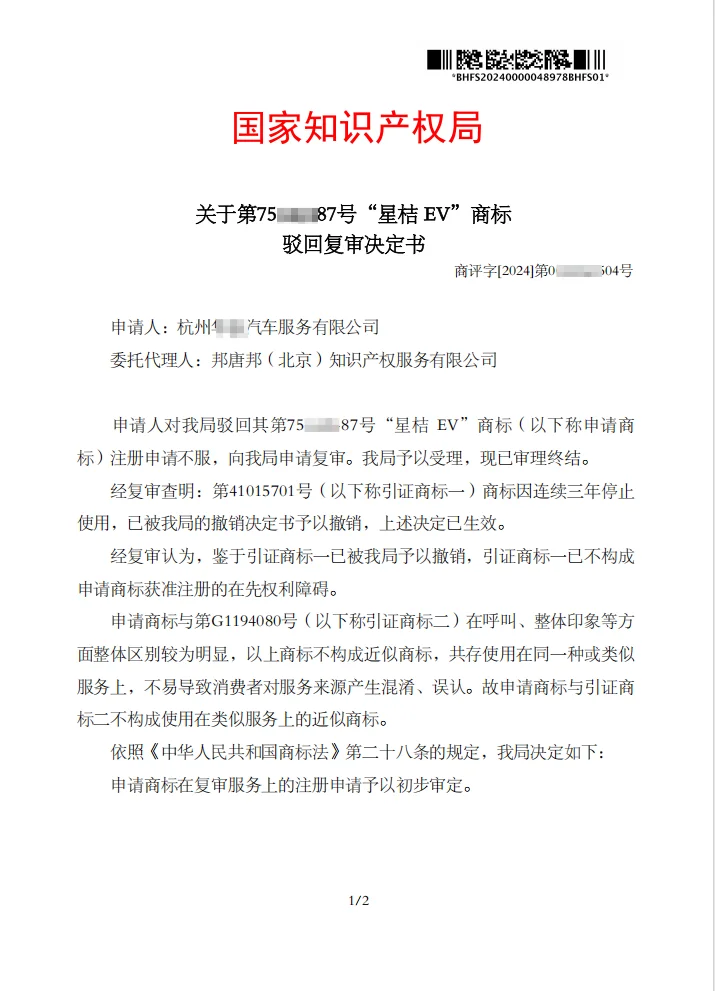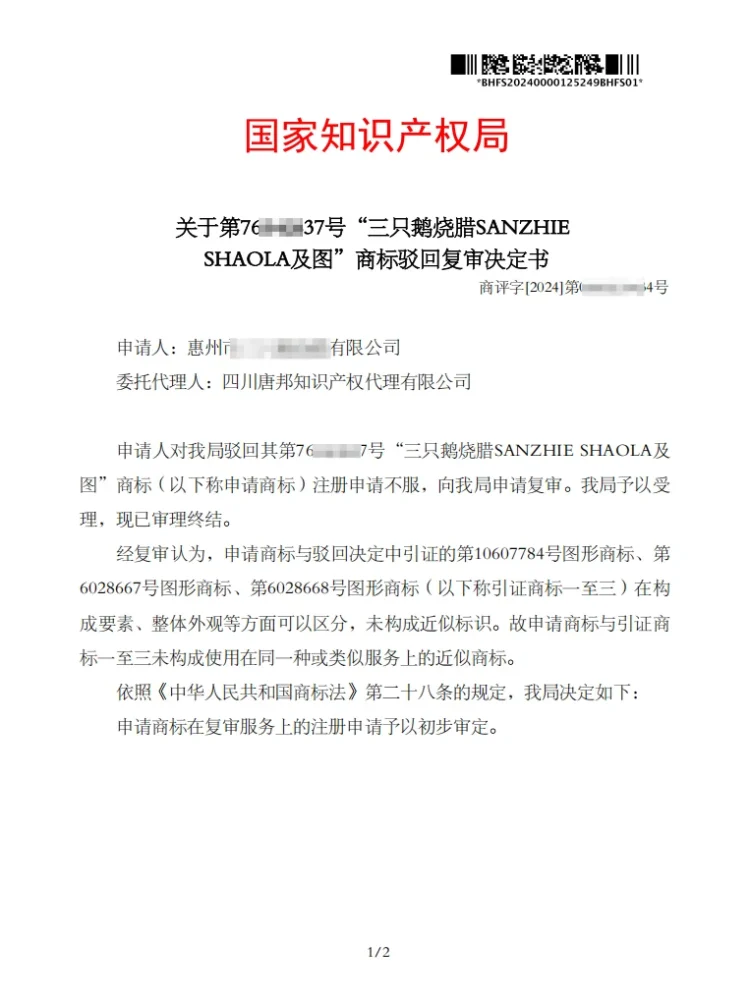Quanzhou Ruishi Trading Co., Ltd. (hereinafter referred to as the Respondent) filed Trademark Application No. 70122547 for the mark “Jiangbenhaiersi (将本海尔斯)” (hereinafter referred to as the Disputed Mark) on March 11, 2023, which received preliminary approval on June 6, 2023. Toprotect its lawful rights and interests, the Opponent authorized our firm to initiate an opposition procedure against the Disputed Mark.
Case Strategy
Upon accepting the mandate from the Opponent, our team formulated a tailored approach based on the specific circumstances of this case:
First, we conducted thorough searches and comparative analyses of both the trademark composition and designated goods/services. The Disputed Mark exhibits high similarity to the Opponent’s prior registered marks “Haiersi” and “Xin Haiersi” in terms of distinctive elements, phonetic pronunciation, and overall conceptual meaning. Crucially, all goods covered by the Disputed Mark fall within categories identical or highly similar to those protected under multiple existing Haiersi series trademarks owned by the Opponent.
Second, we evaluated the Opponent’s established reputation in the market alongside an assessment of the Respondent’s subjective intent. Since its founding in 1984, the Haiersi brand has primarily focused on apparel products through sustained market development efforts, achieving leading market position in China’s sportswear industry. Despite this awareness, rather than exercising reasonable avoidance, the Respondent deliberately registered a mark substantially similar to the Opponent’s prior trademarks for use on competing goods—demonstrating clear bad faith intent.
Furthermore, investigation into the Respondent’s trademark portfolio revealed additional filings including “Buhaiersixun” and “Buduoweixun”, which blatantly copy multiple well-known brands within the industry. This pattern confirms systemic bad faith practices aimed at deceiving consumers through imitation of established brands, thereby violating Article 7 of China’s Trademark Law concerning good faith principle.
Ruling Outcome
Following examination, the China National Intellectual Property Administration (CNIPA) upheld our arguments and issued its Decision No. 70122547 on April 15, 2024, refusing registration of the “Jiangbenhaiersi (将本海尔斯)” mark pursuant to Article 30 of the Trademark Law.
Key Takeaways
In handling this case, we invoked Article 30 of China’s Trademark Law on behalf of the Opponent. Central to our successful argument was determining whether the Disputed Mark constituted an identical/similar mark to the Opponent’s prior registrations across comparable goods. When assessing trademark similarity, multidimensional factors must be considered—including both substantive aspects (distinctive features, visual/phonetic resemblance) and contextual elements (market overlap between goods/services). Additionally, evaluators must weigh evidence regarding the applicant’s subjective intent. Based on comprehensive analysis of these elements, we established that the Disputed Mark indeed constituted an identical/similar mark to the Opponent’s prior registrations across competing goods, thereby contravening Article 30 provisions.
上一篇:Reward of ……
下一篇:Nokia Sets……



